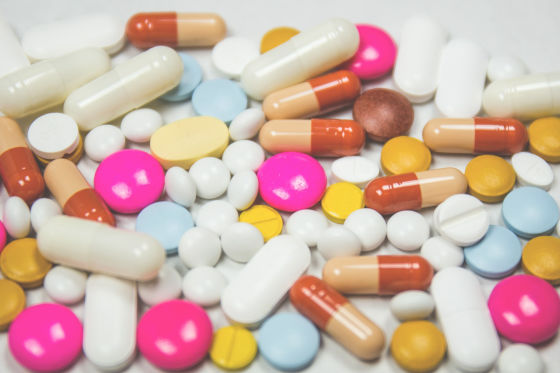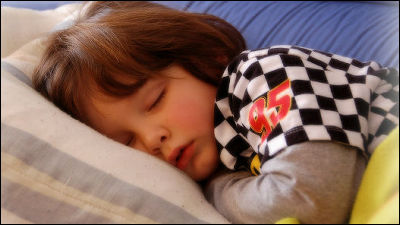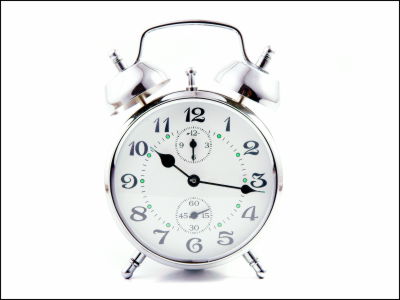Little is known about 'melatonin' that brings about sleep Summary

by Jelleke Vanooteghem
Melatonin is known as a hormone that causes natural sleep, but there are many people who do not know exactly how melatonin works. Scott Alexander, who works as a scholar / blogger, explains some of the less commonly known points, such as the effects of melatonin, the appropriate dosage, and whether melatonin is useful for jet lag.
Melatonin: Much More Than You Wanted To Know
https://www.lesswrong.com/posts/E4cKD9iTWHaE7f3AJ/melatonin-much-more-than-you-wanted-to-know

Melatonin is a hormone secreted from a part called a pineal gland, which is synchronized with the circadian rhythm and is called "sleep hormone" because it has the effect of switching between arousal and sleep and inviting natural sleep.
Usually, the melatonin concentration in the blood when I wake up is the lowest in 1 day, about 1 pg / ml. Melatonin concentration rose to about 10 pg / ml from 15 hours after awakening, melatonin in the blood continues to increase, and drowsiness comes when reaching 60 to 70 pg / ml. It is said that the melatonin peak is around 3 am, and when it exceeds 3 am, the melatonin concentration gradually decreases in the morning.
On the other hand, sleeping of people involves not only circadian rhythm but also what is called "S process". The S process is partially controlled by molecules called adenosine, which make people feel tired. Adenosine is produced while people are awake, and adenosine is wiped out asleep.
Both circadian rhythm and process S function together to control arousal and rest, but the two systems sometimes send different instructions depending on jet lag, transition to night type, drug use etc. . At this time, people feel tired in the morning and fall into the situation that they can not easily fall asleep even if they enter the bed at night.
Melatonin is a substance that is involved in both processes. In the S process, it is involved as a "hypnotic agent" and in circadian rhythm it is involved in "recognizing" when the body should sleep ".
◆ 1: Does melatonin have a hypnotic effect?
It is unanimously recognized that melatonin has a hypnotic effect. However, as to how much hypnotic effect is there is opinion splitting, and some researchers think that it is "very weak". In Japan, you can not easily get it, but there are countries where supplements of melatonin can be purchased at a drugstore and so on. How long does it take for you to sleep when you drink this supplement? In the research that studied, only "10 minutes" results are shown. It is about one-third the efficacy of Zolpidem used as a sleep inducer, but there are far fewer side effects and it can be said that it is effective as a sleep inducer.
◆ 2: Correct dose of melatonin

by freestocks.org
Supplements containing 10 mg of melatonin are sold in the United States, but the correct dosage of melatonin is 0.3 mg.
Melatonin research is mostly targeted at the elderly. Elderly people produce fewer melatonin than people of the younger age and therefore react sensitively to melatonin supplements. In the 2001 study, it was reported that subjects receiving 0.3 mg of melatonin sleep better than subjects receiving 3 mg of melatonin and fewer side effects. Meta-analysis has shown that administration of 0.3 mg or more does not affect the effect, while the risk of side effects increases.
◆ 3: Circadian rhythm What is sleep disturbance?
A circadian rhythm sleep disorder is called circadian rhythm that people do not want to sleep, circadian rhythm does not match at the time they want to get up. Circadian rhythm Sleep disorder is the most likely to suffer from telescoping boys and girls whose melatonin cycle shifts naturally behind. They can not wake up until they are late in the morning, they do not mind sleeping until late at night. Since the cycle of the body does not exist in the system called school, teenage boys and girls get lack of sleep or sleep at a time when the body does not want, making it impossible to get appropriate sleep.
If this tendency continues or deteriorates even if you become an adult, it will be called the Sleep Phase Back Syndrome (DSPS). Mild DSPS is called "night type", but also when it becomes severe it will be like insomnia. However, insomnia is a state in which it goes to bed at 23 o'clock but can not sleep until 2 o'clock in the morning, but it is raised by an alarm at 7 o'clock in the morning, but in the case of DSPS, even if it happens at any time in the morning " It is characterized by being able to sleep without fail if it is a fixed time saying "time."
Besides this, there are also the opposite of DSPS, sleep phase advanced syndrome (ASPS) many elderly people, and non-24 hour sleep awakening syndrome which sleep deprivation time falls by 1 hour every day. Melatonin is used to treat such sleep disorders.
For example, in the case of treatment with DSPS, methods such as "ingest melatonin 9 hours after getting up, 7 hours before going to bedtime", "blocking blue light" and "doing exercise in the morning" are called " "I take melatonin shortly afterwards", "block the blue light" and "to exercise in the evening" are taken.
◆ 4: Can I use melatonin for jet lag?

by Leio McLaren
Research that has been done so far seems to be effective for ingesting 0.3 mg of melatonin before going to bed in the new time zone. However, Alexander says, "Moving to a place where time rewinds for 5 hours is equivalent to having a circadian rhythm of a teenage boys and girls, so 9 hours after getting up according to the treatment of DSPD and 5 days after going to bed Should I take melatonin before time? "
◆ 5: Do you take a strange dream when taking melatonin?
This is based on Alexander's experience. However, Dr. Rafael Perrajo, Professor of Sleep Medicine at Stanford University for the interview of Hajinting Post, said, "I do not believe that Melatonin will produce vivid dreams." It is believed that people suffering from sleep disorder drink medicine etc. It is said that suppression of REM sleep occurs, and conversely if it stops medicine it is thought that "rem rebound" will occur which makes nightmare or insomnia That is why.
◆ 6: Does melatonin relate to mental status?

by Pablo Heimplatz
Seasonal affective disorder (SAD) is a typical mood disorder believed to be related to melatonin. One of the reasons why mood disorder tends to occur in winter is that delay in sunrise time causes delays in circadian rhythm, but on the other hand it is said that the circadian rhythm will be accelerated by early sunset It is. The combination of these two causes the circadian rhythm to collapse and cause mood disorders.
As one of the treatments of SAD, there is something like sunshine as well as treatment of DSPD. And, although it is a preliminary study, there are also research results that the administration of melatonin exerts its effect. However, in the case of SAD, it should be noted that there is a mixture of people with a circadian rhythm shifted in front and those displaced behind, and there is a fear that symptoms may worsen when melatonin is administered at the wrong timing not. Also, because the cause of SAD is not the amount of sunlight but the circadian rhythm, it may occur in the summer, not in winter.
Related Posts:
in Note, Posted by darkhorse_log







